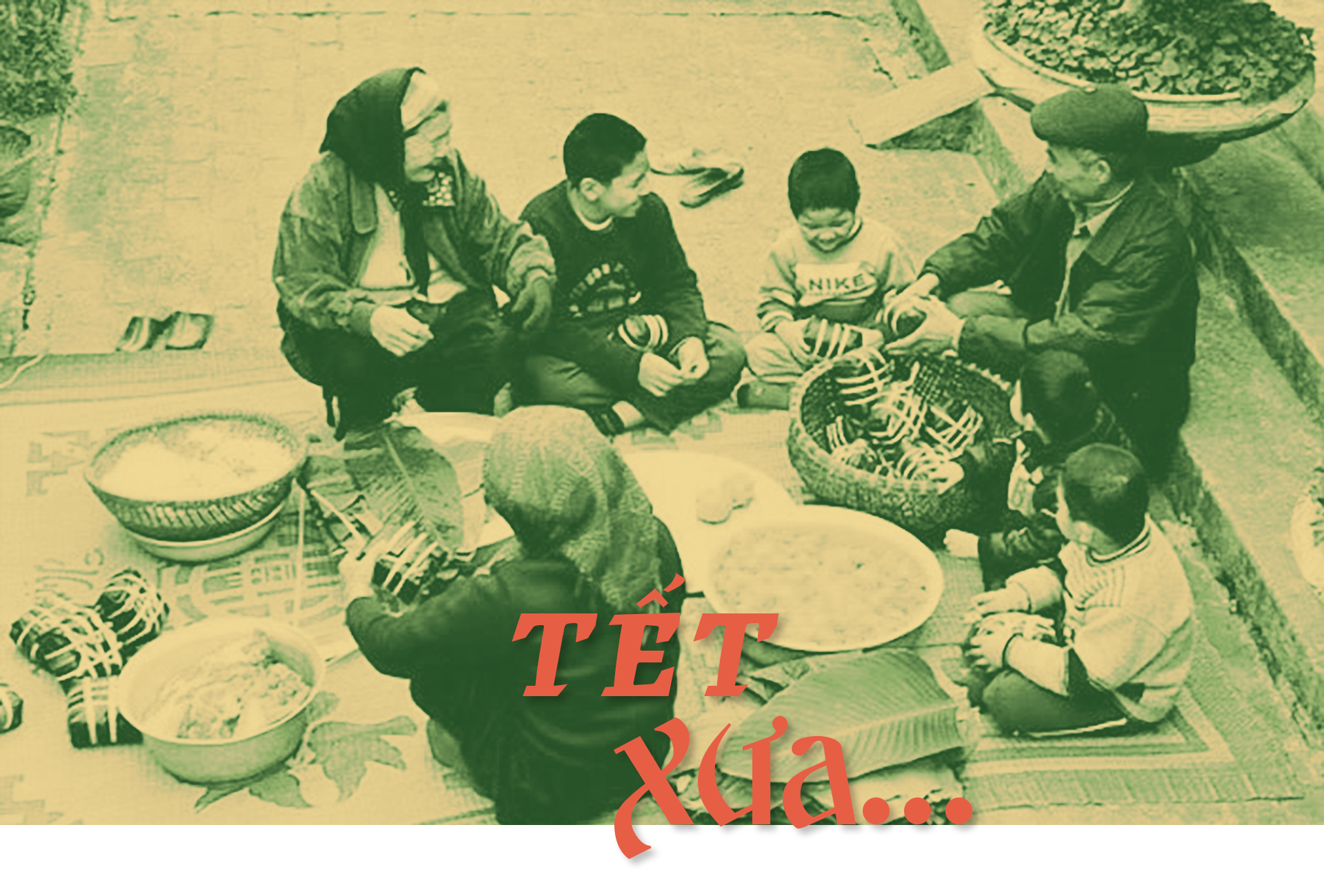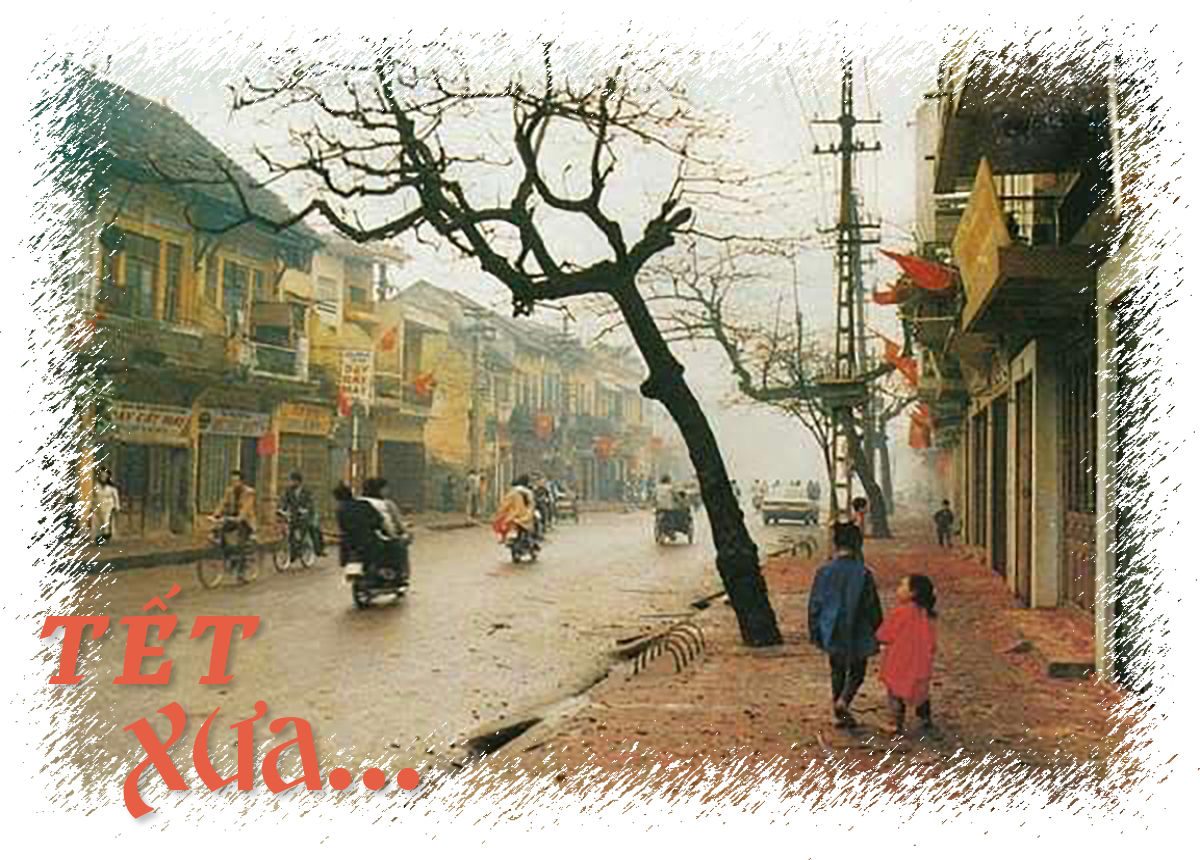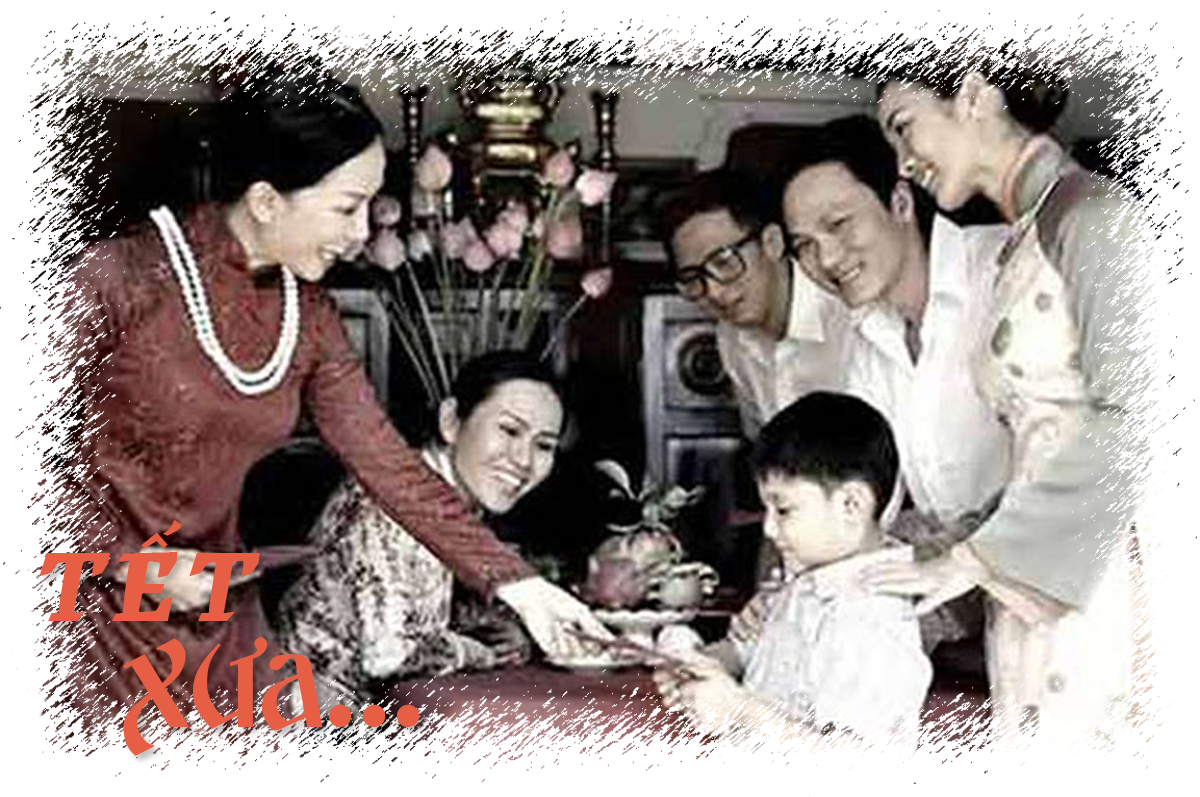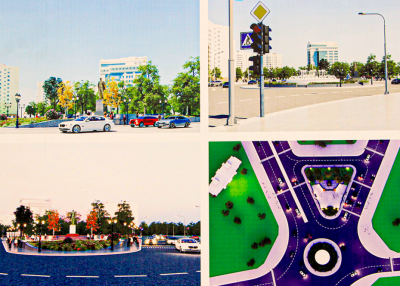
In the distant past, the country was mainly agricultural, so there were more people at home than those who went far away. Most people were born to be attached to their hometowns and fields. Those who left their hometowns were mainly soldiers, police officers, teachers, vocational schools, agricultural and forestry workers, etc.
Only children yearn for Tet. Tet means taking a break from school, going out, getting new clothes, receiving lucky money, etc. Time seems to slow down. Since December, we have had “countdown clocks”, looking forward to each day to celebrate Tet.
At the age of nine or ten, we were already calculating and knowing which family in our village had a “deserter”! We didn’t know who was better than who. Just knowing that they “ate state rice”, had vacations, wrote letters, spoke a Nghe dialect mixed with a Northern dialect, had a clock, etc. meant they were “classier”, better than the people at home (!).
When the northeast monsoon winds brought cold and drizzle, the whole village was in the middle of the planting season, and there were people from far away returning to their hometowns. The children were like “radar”, catching the signal very quickly. We trotted over. Whoever had something interesting, we were curious, admiring, and discussing. Everyone was barefoot, in sloppy clothes, no one knew how to say hello, just looking around, waiting for gifts!

Some of the men brought out a whole pack of Hai Chau candy and asked their children whose family it was, then gave each child a few pieces of peanut jam and a few pretty square candies. We looked carefully at the flowers and read each word on the candy paper. Inside was a layer of translucent wax paper, which could be eaten! There were some luxurious candies, wrapped in colored cellophane, and after eating, the cellophane paper was used as a mirror to hang or stored away for later cutting. In those days, when it came to candy, all the candies were delicious, could be saved, and were surprisingly delicious!
Some men, when they got home, would bring out a pack of firecrackers to light. In the countryside, no one knew how to make firecrackers. The whole country was famous for Binh Da firecrackers. The small ones exploded only slightly. Later, there was the big Dien Quang firecracker, which made a lot of noise! When the firecrackers exploded, all the children rushed to them, covering their ears and jumping around. When the explosion ended, all the children rushed in to look for the dud firecrackers. Dogs ran around, hiding in the bushes!
On Tet holiday, people who live far away from home often go around the neighborhood. They visit, wish their relatives a happy new year, give gifts, lucky money, and lucky money to the elderly and children.

There are also people who live far away and are busy with work and cannot return. They send New Year greetings letters soaked in perfume – a very elegant and luxurious gift. On the left side are printed some pink peach blossoms; they carefully write down the New Year greetings. Any house that has a New Year greeting letter is very precious and respected. The letter is solemnly posted on the lower part of the house, the homeowner seems proud, and many years later they still mention them!
Nowadays, more people go away than stay at home. Shops come to the neighborhood. Goods are almost saturated. Even outside the gate, there are boxes of candy and jam like in the city. The mobile phone has shortened space and time. Most children are no longer as eager for candy and clothes as they used to be. Who goes and who comes back, they no longer care much!
Missing a time - Poor Tet in a poor hometown but strangely warm and loving.
Article: Mr. Dang
Illustration: Document









